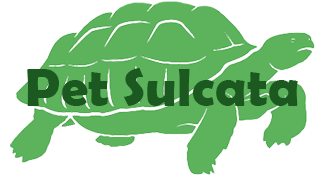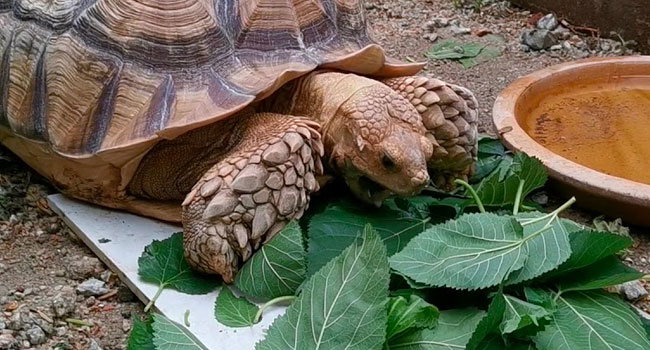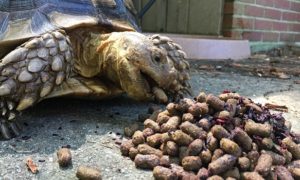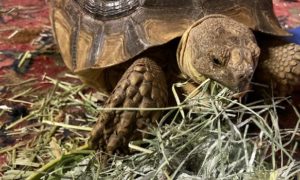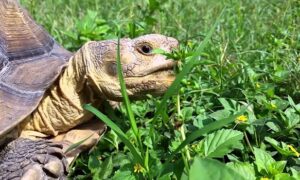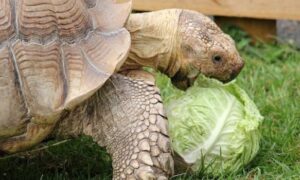Sulcata tortoises are opportunistic eaters. They graze and will try just about anything they come upon, which means in the wild or free-ranging in your yard, a sulcata may take a bite of meat or bug. However, generally speaking, sulcatas are herbivores and eat vegetables. Sulcatas do not typically eat meat.
Proper Sulcata Diet
Sulcatas need a high fiber diet that is primarily grasses. You should offer primarily grasses, weeds and greens. Feed tortoise pellets 1-3 times a week. Offer flowers and other treats just once in a while.
At least 80% of the diet should be grasses and greens. Offer variety for optimal nutrition.
Best Grass for Sulcata
Most yard grasses are safe for sulcata tortoises to eat. Some grasses can be higher in proteins, but generally speaking common yard grasses are safe as long as they have not been sprayed with herbicides or pesticides.
- Bermuda grass
- Fescue grass
- Kentucky blue grass
- Oat grass
- Orchard grass
- Timothy grass
Best Weeds for Sulcata
Weeds aren’t always ideal to find in your yard, however weeds are a great source of nutrition for sulcata tortoises.
Some common safe weeds for tortoises include:
- Chickweed
- Clover
- Dandelion
- Hensbit
- Mallow
- Milk thistel
- Nettle
- Plantain (narrow and broad leaf)
- Sow thistle
Proteins for Sulcata Tortoise
Sulcatas eat a low-protein diet. A high-protein diet can cause rapid growth and kidney failure. You may even notice growth abnormalities, like pyramiding.
When you think of proteins, you likely think of meat proteins, however sulcata do not typically eat meat proteins and it’ll be rare you see a sulcata eat meat.
The protein that sulcatas eat are plant proteins. Some vegetables and greens are higher in proteins than others, which means you need to keep these to a minimum.
High Protein Vegetables
It is important to keep protein intake to about 0-5% of a sulcata tortoise’s diet, only offering higher-protein greens once a week or just occasionally.
Spinach, kale, collard greens and other dark, leafy greens are high in proteins.
